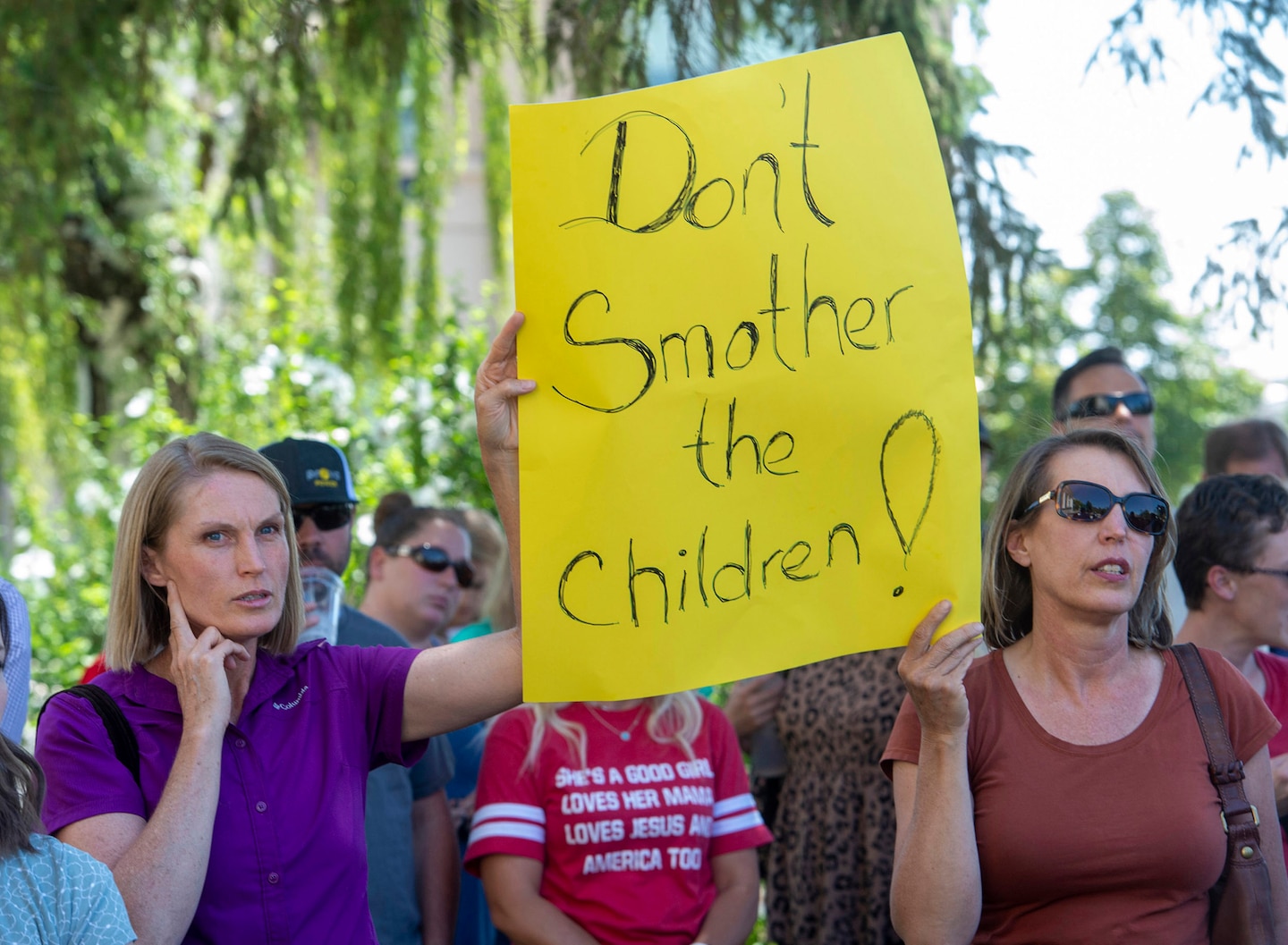The Great American Crackup is underway

In Georgia, Gov. Brian Kemp (R) sued to stop Atlanta from enforcing mask-wearing to mitigate the spread of the pandemic.
In Florida, longtime Trump adviser Roger Stone, after the president commuted his sentence, said of his and Trump’s opponents: “They’re satanic.”
The Great American Crackup is underway.
A week ago, I argued that Trump’s conspiracy theories “are spreading faster than covid-19 among his supporters, inducing mass delusion.” So I asked scholars to put this moment into historical and psychological context.
The good news: Americans are no “crazier” — that is, no more paranoid or predisposed to conspiracy thinking — than in the past. The bad news: For the first time in our history, a president and a major political party have weaponized paranoia, to destabilizing effect.
Joseph Uscinski, a University of Miami political scientist who studies conspiracy theories, notes that psychological measures of paranoia have been “entirely stable.” Conservatives are inherently no more conspiratorial than liberals; only low education (and, relatedly, income) predict such tendencies. The difference, Uscinski says, is “we have a president who has built a coalition by reaching out to conspiracy-minded people.”
Dartmouth College political scientist Brendan Nyhan finds that “our political elites are amplifying the fringe more than we’ve seen” in modern times, while a president mounts a “grinding attack on factual evidence.” The result, he says, is “conspiracy theories and misinformation become yoked to partisanship in increasingly powerful ways.”
There has always been what the late historian Richard Hofstadter called the “paranoid style” in U.S. politics: witch hunts, Illuminati, Red Scares. William Jennings Bryan promoted conspiracy theories. Richard Nixon believed in them. But Trump is unique in promoting conspiracy thinking from the bully pulpit, and in building a system in which elites — Republican Party leaders — validate the paranoia.
Americans, by nature, are more distrustful of authority than citizens of other advanced democracies. “You always hear Americans say, ‘I know my rights,’ but you never hear an American say, ‘I know my responsibilities and obligations,’ ” Stanford University public-opinion specialist Morris Fiorina observes. The distrust is compounded by polarization of the political system: the collapse of local media (replaced by coastal national media); the growing tendency to live, work and worship among people of similar beliefs; the divisive effect of social media; and increased “sorting” of political parties into ideologically homogeneous blocs.
This has encouraged what Eitan Hersh of Tufts University describes as “political hobbyism,” in which partisans embrace political parties as they do hometown sports teams. A study of New England Patriots fans (by Nyhan and others) after the “Deflategate” scandal found the most devoted and informed fans were the most likely to embrace conspiracies (e.g., the NFL punished the Patriots to “distract” from other issues). The same happens with Republicans embracing Trump’s “deep state” theories, or his claim that he had a bigger inaugural crowd than Barack Obama (some well-informed Republicans, even after seeing photos of the crowds in one study, insisted Trump’s was larger). Hersh explains the thinking: “I care about truth, but I care less about truth than about supporting the Patriots because the stakes are really low. … It’s a catharsis, camaraderie with our partisan peers.”
But what if the stakes aren’t low? An April study by Uscinski and others found Trump’s supporters were the most likely to believe the covid-19 threat was exaggerated — particularly Trump backers who paid the most attention to politics. This, the researchers said, was “likely a consequence of President Trump and other Republican/conservative elites publicly lending credence to this idea.”
And so strong Trump partisans refuse to wear masks. “The science is very clear: People take cues from political leaders,” Nyhan says. Leaders typically rejected conspiracy theories, and the public followed. Now, Trump embraces them, and his followers concur — some out of partisan solidarity, others out of genuine belief.
“Human psychology has not changed,” Nyhan says. What’s changed is we’re discovering that “democratic systems don’t work well when political elites don’t deal in factual information.”
In other words, it’s not us. It’s him.
Read more:






